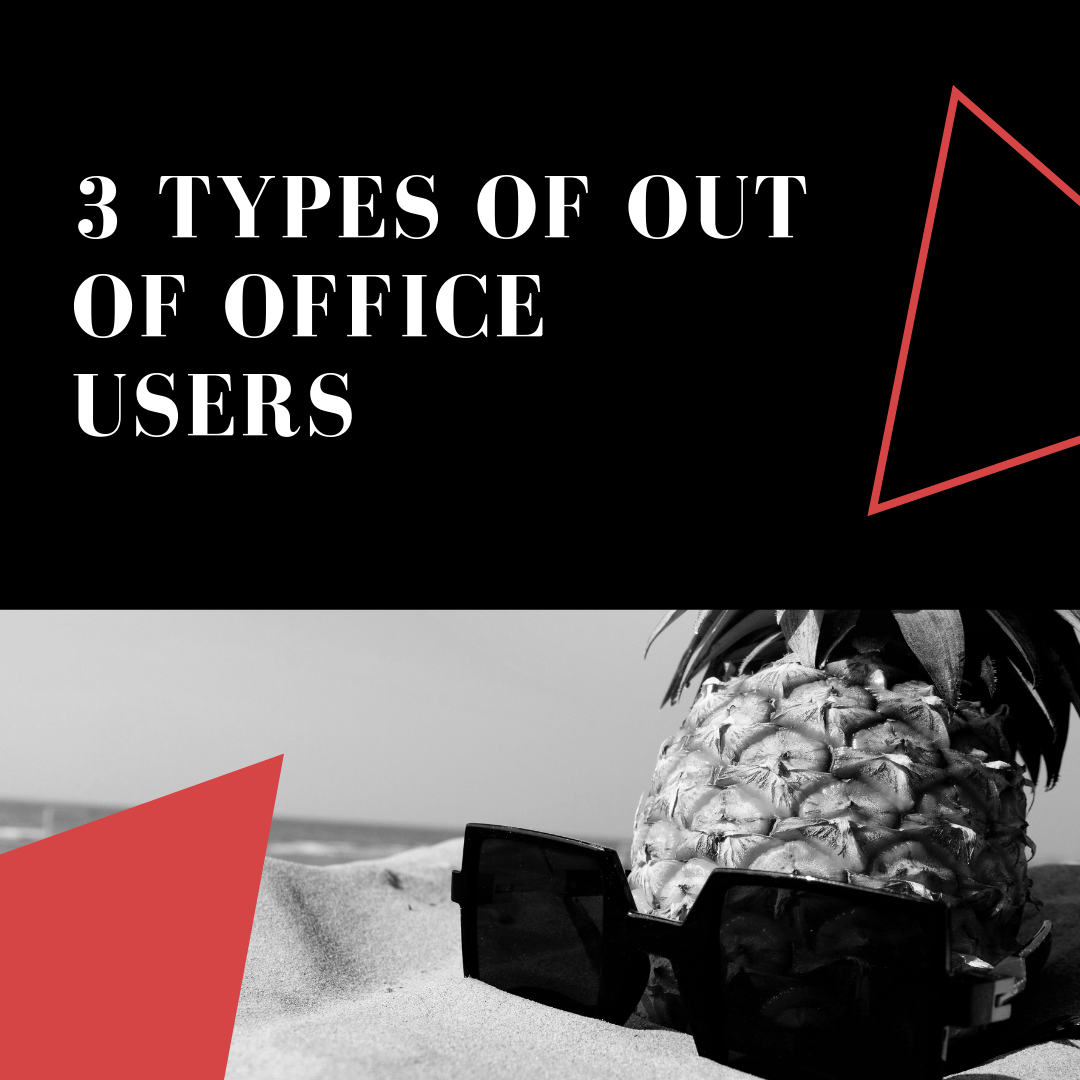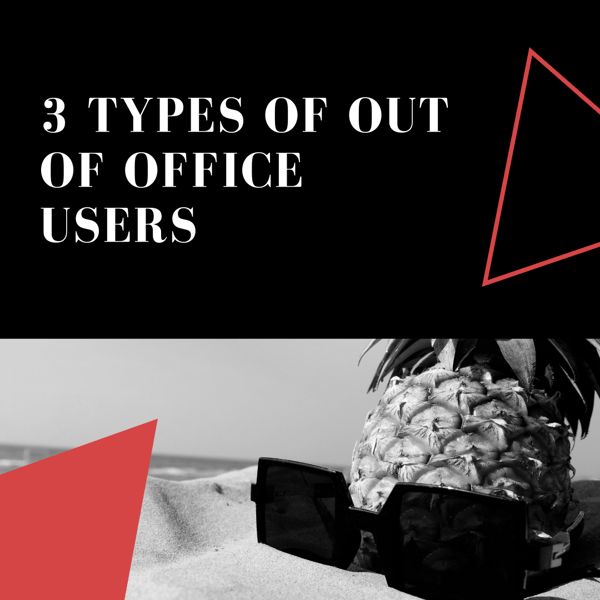
3 Types of Out of Office Users
The Kavaliro team was having a debate the other day on whether or not you should use an out of office message (OOO) when you are not at work, and what kind of situations constitute an OOO. Our marketing department stayed neutral on the topic, but we thought we would break down the three types of OOO people!

1. Never OOO
Some of our Kavaliro team members never use an OOO; their logic is that even if they are OOO, they are not away from their phone. Josh Leibowitz, in an article on LinkedIn, said: "...using OOOs is a sign of executive weakness, neediness or, worse, lack of commitment." He has a point here, but this point does not translate for all employees. Most executives have assistants who manage their email, phones, and calendar, which makes being a "never OOO" easy. If you are the kind of employee who just can't put down their phone even when relaxing on the beach then being a "never OOO" is not a bad thing. If you are a one-person department, you might be in a position where you can never truly be out of the office. In situations where you travel make arrangements with your company, an example would be to have your company cover your international data if you do need to be on call. If you choose to be a never use an OOO be prepared to answer emails when you are halfway across the world on a romantic dinner.
2. Vacation OOO
The Vacation OOO is the most common kind of message you will see. Individuals who are heading on vacation for a week and who will be slow to look at email tend to use the "out of office message" as a way to let their team know who to contact if there is an emergency. An example OOO for vacation reads:
"Thank you for your message. I am currently out of the office and will have limited access to my email and voice mail. If this is an emergency, please reach out to John at JohnsEmail@Email.com, and he will assist you. I will be returning from vacation on March 3rd. Thank you for reaching out."
While a standard message like this feels less personal, people must know where you are and when they can expect to hear back from you. This kind of message lets them know you are OOO and who to contact if they need something right away.
"I generally use an OOO message when I am traveling overseas and will be in a different time zone," said Director of Recruiting Noelle Williams. "Most of the time I get back to people fairly quickly when I am on vacation, but some times they need something right away, I always let the people who email me know who they should go too while I am out."
Another important point Noelle reminded us of is " When I am out on vacation, I always make it a point to meet with my team beforehand and distribute my workload. Our clients are our top priority, so I ensure my back up does not let anything fall through the cracks."
3. Busy OOO
Our marketing department sometimes uses a busy OOO message with our company. We often find ourselves in the middle of big projects that require 100% focus. The busy OOO is best used with only your internal company, that lets others know you might be slow to respond. An example of a busy OOO that our marketing team recently used looks like this:
"Hey! Kati and the marketing team are currently busy making some awesome things for our upcoming quarter! We are going in and out of brainstorming and work sessions so we might be a little slow to respond but don't worry we will look at your email ASAP! If you need something like right now, send one of us a text, and we will get to you right away!"
The message lets anyone emailing know that the full team is busy but that we will be checking our email throughout the day. This kind of OOO is meant as a courtesy to other employees, to let them know they are not being ignored, and gives them information on how to best reach us in an emergency.
Again the busy OOO is a tool that is best deployed with your internal company, setting this for external emails can make you look unprofessional and make it look like you are putting the needs of the business before the needs of your clients.
No matter what kind of OOO person you are, it is always important to communicate with your team and clients if you are going to be slow to respond or away from your email during regular working hours.


